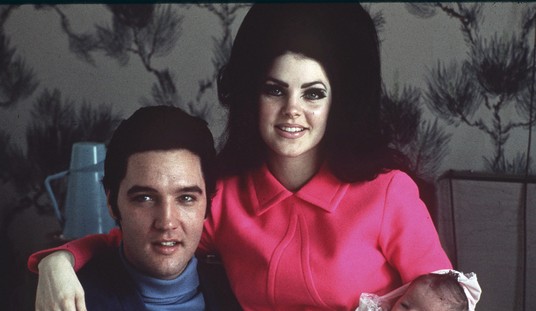
If you think this might lead to media introspection you would be wrong.
There was significant interest welling up yesterday when it was announced that columnist Bari Weiss at The New York Times was resigning her position. Citing a number of long term issues she encountered on the staff Weiss penned a lengthy letter to publisher A.G. Sulzberger, posting it on her personal website for public view. What she details is a spot-on confirmation of much that has been described of the media complex by those in conservative circles.
Weiss describes an atmosphere at the paper that was intemperate, intolerant, and remarkably hostile, but the significant factor is she broadens the scope of something we have been seeing in the press outlets for years, if not longer. What is really exposed here are the factors behind that aggression, the need by the newer generation of scribes to control the thought in our media. By deriding opposing views or claiming aggression is presented by a dissenting view, the new class of journalism is demanding a solitary voice.
Weiss walked away as a result of two issues from the past couple of months. The first was the ridiculous tempest that swirled when Senator Tom Cotton wrote an op-ed in The Times about the call for use of military force to quell the violence that erupted from the recent protests across the country. A number of staff revolted at this supposed affront, and the dramatics we watched taken place inside The Times was amazing. Weiss, positioned as something of a conservative voice on the staff ( she describes herself as a centrist), bore a significant amount of the blowback.
Then with that anger still simmering Weiss was one of the people from the media who signed the allegedly controversial Harper’s Magazine open letter, released last week. That letter, boldly and accurately declaring that canceling and silencing individual voices was wrong, called for open-mindedness and acceptance of other views. It was with amazing speed that controversy erupted in media circles, as a number of signers retracted when a tide of opposition was shrieked from the press.
The call for journalists to be more tolerant was considered intolerant by many. The sadness of that reality is eclipsed by the hilarity of the circular firing squad that emerged. Almost to a person on that list of 150 or so signers you had figures from the left side, socially. That leftists encouraging open thought and acceptance were attacked by close-minded intolerant figures from the same side was something to behold. The Bari Weiss resignation letter only displays more of this.
Her exit began with a Tweet thread she sent out in June, after the Cotton editorial, where she described the realm at The Times as a civil war in the newsroom. What is telling is she described the two combative sides as being between the older liberals on the staff and the newer woke employees. She describes this rift caused by the younger set believing ”The right of people to feel emotionally and psychologically safe trumps what were previously considered core liberal values, like free speech.’’ This is something we on the right have been noting and dealing with for years. Bari, in her letter, describes the mindset of these new arrivals who are driving the narrative at the paper.
A new consensus has emerged in the press, but perhaps especially at this paper: that truth isn’t a process of collective discovery, but an orthodoxy already known to an enlightened few whose job is to inform everyone else.
Note that these are the younger journalists she described, who feel as if they are in possession of more wisdom and knowledge than those veterans with decades of experience on their resumes. But you can also question that wisdom, as the elder statesmen at the paper have turned over the reins to this petulant crowd of new arrivals.
Weiss also explains how the editorial content at the paper is massaged and then belched out with the skewed priorities we have been calling out for some time. If pieces do not follow the new woke party line, or they are created by figures who are not considered part of or sympathetic to that crowd, their work is scrutinized and has proper influences inserted. Conversely those from the approved side of the aisle are granted almost free release.
It took the paper two days and two jobs to say that the Tom Cotton op-ed “fell short of our standards.” We attached an editor’s note on a travel story about Jaffa shortly after it was published because it “failed to touch on important aspects of Jaffa’s makeup and its history.” But there is still none appended to Cheryl Strayed’s fawning interview with the writer Alice Walker, a proud anti-Semite who believes in lizard Illuminati.
Two details emerge here that demand to be absorbed. First, Weiss states that this environment is not isolated to the Times building in Manhattan. That civil war she detailed taking place is something she states is taking place in numerous publications across the country. The second is that all of this digital bloodshed is taking place entirely on one side. She notes herself the Times’ ‘war’’ is between the liberals and the woke youths on staff. That Harper’s letter alludes to conservatives and right-wing types being behind the censorship wave in this country, except their almost exclusive list of lefties led to calls for numerous names to be called out and silenced — by other leftist journalists.
This Weiss resignation letter confirms for many that the alleged paranoid claims by those of us on the right are proven correct. When specific outlets like FoxNews were targeted by politicians, or when InfoWars had been deplatformed by the efforts of those like Oliver Darcy and Brian Stelter at CNN, it was said this was not a wise decision. The call for a constriction on free expression was something that would come back and also attack the left. Weiss has all but confirmed this to be the case.
When the conflicts in the media are entirely between warring factions on the left it leads to what we are seeing from major news outlets. Resisting and fighting against differing opinions creates a homogenized news narrative. It becomes a solitary voice, and an intolerant one at that. They have denied this to be the case, but with growing frequency we are seeing the evidence revealed. This Bari Weiss resignation is only the latest example, but it will not be the last.














Join the conversation as a VIP Member